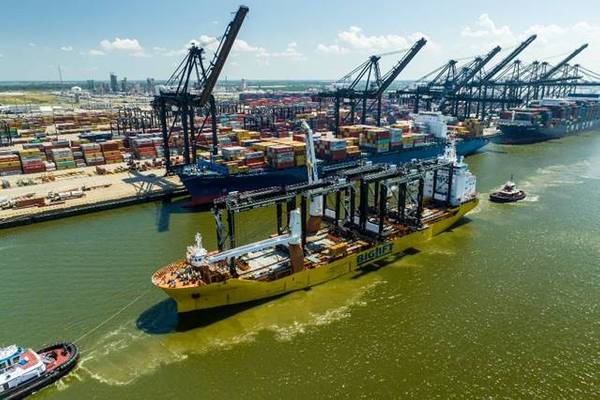
Port Houston has announced the arrival of six hybrid-electric rubber-tired gantry (RTG) cranes.
Including this most-recent delivery, the Port has acquired 26 new RTGs since December 2023, which have been deployed across its Barbours Cut and Bayport Container Terminals. The most recent delivery of these cranes is the fourth of five total deliveries that the port will receive this year.
The acquisition of these hybrid-electric RTGs represents another step toward Port Houston’s goal of carbon neutrality by 2050. Unlike conventional diesel-powered cranes, these hybrid models significantly reduce greenhouse gas emissions, noise pollution, and fuel consumption.
Compared to diesel models, these RTG cranes reduce NOx, PM, HC, and CO emissions by 90%. By incorporating advanced hybrid technology, these RTG cranes deliver the operational efficiency and versatility of supplied battery power, coupled with the dependable performance of diesel, all while significantly reducing their environmental footprint.
An additional batch of RTGs is expected to arrive by the fourth quarter of this year. By the end of this year, 57 of the total 147 RTG cranes across both container terminals will be hybrid-electric.


